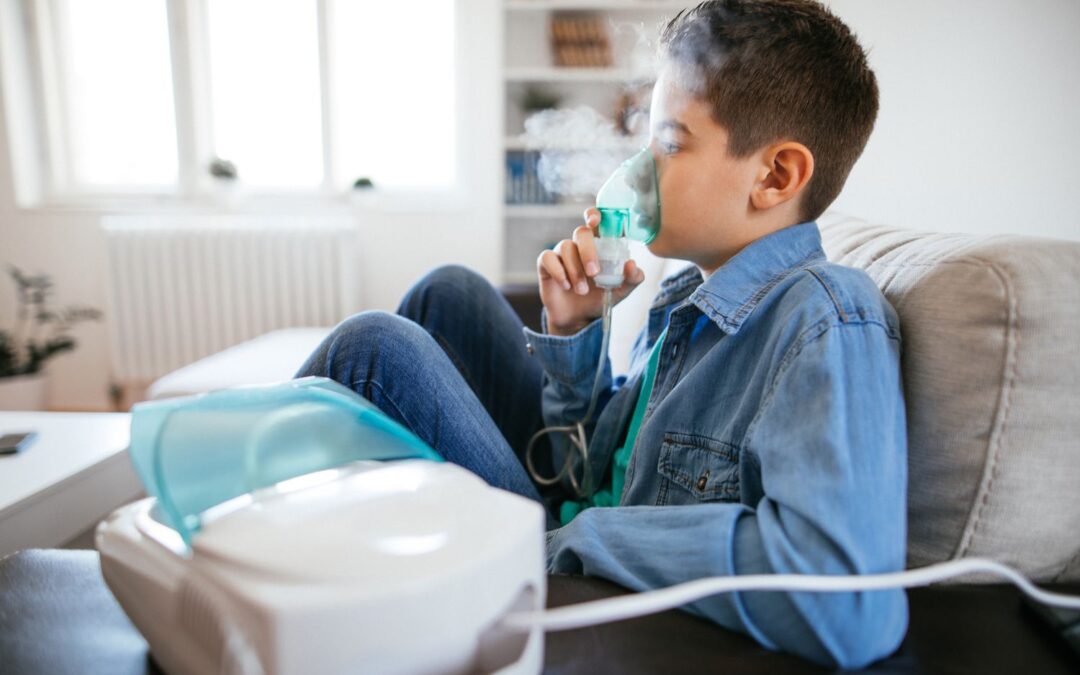Managing respiratory conditions like asthma, COPD, and chronic bronchitis requires effective treatment, and nebulizers are vital in providing relief. These devices convert liquid medication into a mist, making it easier to inhale directly into the lungs.
What is a Nebulizer and How Does It Work?
A nebulizer is a medical device used to deliver medication in aerosol form directly to the lungs. Unlike inhalers, which require specific breathing techniques, nebulizers are easy to use and ideal for individuals of all ages, including children and the elderly. They are commonly prescribed for respiratory conditions such as asthma, COPD, and bronchitis, where they efficiently deliver medications like bronchodilators or corticosteroids.
Key Features to Consider When Buying a Nebulizer
When shopping for a nebulizer, keep these features in mind:
1. Size and Portability
Portable nebulizers, like the Philips InnoSpire Go, are compact and easy to carry, while models like the DeVilbiss PulmoNeb are designed for home use.
2. Noise Level
Traditional compressor nebulizers can be noisy. The Omron MicroAir NE-U22 is known for its quiet, ultrasonic operation, perfect for nighttime use.
3. Medication Compatibility
Ensure your nebulizer is compatible with your medication. Devices like the Pari Vios PRO work well with a wide range of liquid medications.
4. Speed of Delivery
Some nebulizers, such as the Philips InnoSpire Essence, deliver medication faster, reducing treatment times, which is essential during asthma attacks or severe respiratory distress.
Top Nebulizers of 2024: Our Best Picks
1. Philips InnoSpire Essence – Best for Home Use
- Pros: Compact, affordable, reliable performance.
- Cons: Not as portable as other models.
- Ideal For: People seeking a durable, home-based nebulizer.
2. Omron MicroAir NE-U22 – Best Portable Nebulizer
- Pros: Ultra-portable, quiet, battery-powered.
- Cons: Higher price point.
- Ideal For: Travelers or those needing a portable solution.
3. Pari Vios PRO – Best for Children
- Pros: Sturdy, quick treatment time, child-friendly accessories.
- Cons: Bulkier than other models.
- Ideal For: Parents needing a reliable nebulizer for kids.
4. DeVilbiss Traveler – Quietest Nebulizer
- Pros: Extremely quiet, portable, rechargeable battery.
- Cons: Smaller medication chamber.
- Ideal For: Users seeking a quiet device for nighttime use.
5. Drive Medical Portable Nebulizer – Best Budget Option
- Pros: Affordable, reliable, compact.
- Cons: Slower delivery time.
- Ideal For: Budget-conscious buyers who need a portable option.
Who Should Use a Nebulizer?
Nebulizers are beneficial for individuals with various respiratory conditions:
- Asthma Patients: Nebulizers, like the Pari Vios PRO, deliver bronchodilators to open up airways and reduce inflammation during an asthma attack.
- COPD Sufferers: Those with chronic obstructive pulmonary disease benefit from fast medication delivery through devices like the Philips InnoSpire Essence.
- Children and Elderly: Nebulizers are ideal for children and the elderly who may have difficulty using inhalers. The Pari Vios PRO is especially suited for pediatric use.
Tips for Proper Nebulizer Maintenance
To keep your nebulizer in good condition, follow these maintenance tips:
- Clean after Each Use: After each session, rinse the medication chamber, mask, and mouthpiece with warm water to avoid buildup. The Omron MicroAir NE-U22 has detachable parts that are easy to clean.
- Deep Clean Weekly: Soak parts in a mixture of water and vinegar weekly to disinfect.
- Replace Filters: If your nebulizer uses a compressor, like the Philips InnoSpire Essence, replace the air filters regularly to ensure optimal performance.
- Store Properly: Store your nebulizer in a dry, dust-free area when not in use.
Conclusion
Nebulizers are a vital tool for those managing chronic respiratory conditions, providing fast and efficient medication delivery. The top nebulizers of 2024 offer advanced features, quiet operation, and portability, making it easier for users to manage their conditions at home or on the go. Whether you’re looking for a portable option like the Omron MicroAir NE-U22 or a budget-friendly choice like the Drive Medical Portable Nebulizer, these models offer reliability and convenience.
FAQs
How often should a nebulizer be replaced?
Nebulizers generally last 1–3 years with proper care. Replace parts like masks and tubing every 6–12 months, depending on usage.
Can nebulizers be used with any medication?
Nebulizers can administer a variety of medications, including bronchodilators and corticosteroids. Ensure your model, like the Pari Vios PRO, is compatible with your prescribed medication.
What’s the difference between a nebulizer and an inhaler?
Inhalers are portable and deliver a set dose of medication, while nebulizers convert liquid medication into a mist for easier inhalation over longer periods.

